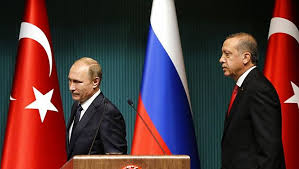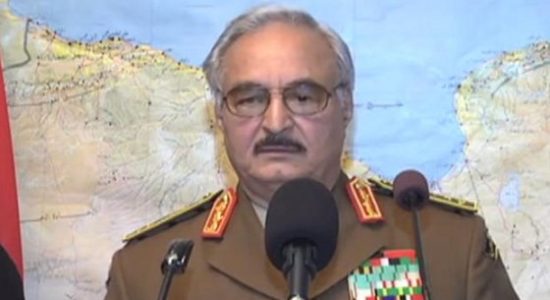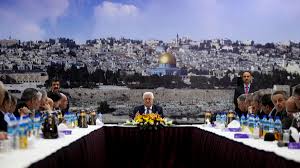Il generale Haftar persiste nel suo lavoro di rafforzamento della sua figura nell’est della Libia, guadagnando di giorno in giorno maggiori poteri. I recenti successi militari dell’esercito di Haftar hanno permesso al settore petrolifero di rilanciarsi, secondo dati recenti la compagnia petrolifera libica Arabian Gulf Oil Company (AGOCO) ha aumentato la produzione di petrolio fino a circa 300 mila barili al giorno, inoltre secondo quanto riportato dalla National Oil Company (NOC) l’output petrolifero il Libia è salito a 485 mila barili al giorno. La ripresa della produzione è avvenuta immediatamente dopo la riconquista da parte di Haftar dei porti di Sidra, Ras Lanuf, Zueitina e Marsa al Brega, l’insieme delle infrastrutture che costituiscono la mezzaluna petrolifera. Entro la fine del 2016 la Libia potrebbe arrivare a produrre quasi un milione di barili al giorno di petrolio, segnando una svolta nel settore dal 2011.
La ripresa del settore petrolifero comporterà però un enorme afflusso di denaro nella Banca Centrale libica con sede a Tripoli, sotto il controllo del Governo di Unità Nazionale, rivale del Generale Haftar. In realtà la liberazione dei porti della mezzaluna petrolifera si sta rivelando una mossa molto astuta da parte di Hafar, che oltre a muoversi militarmente sta gettando le basi per una nuova fase di conquista politica del potere in Libia. Consentendo al paese la ripresa della produzione petrolifera, Haftar sta rafforzando la sua figura in tutta Libia, compresa la Tripolitania e le sue operazioni militari acquistano di volta in volta maggiore legittimità anche a livello internazionale. Liberando i porti di Ras Lanuf e Sidra ha voluto dare dimostrazione della sua intenzione di operare nell’interesse della Libia, è però vero che le vittorie militari di Haftar sono arrivate grazie alla collaborazione delle milizie locali alle quali era stata garantita la possibilità di inserirsi nella ripresa delle attività petrolifere.
Inoltre, il fatto che i porti della mezzaluna petrolifera siano stati liberati per mano di Haftar pone un serio rischio per il governo di Tripoli, che si trova costretto ad accettare una situazione in cui Haftar esercita un controllo ferreo sulle entrate di denaro provenienti dal commercio di petrolio e quindi un enorme influenza sul processo politico interno, è molto probabile infatti che Haftar inizi ad avanzare pretese verso Tripoli, consapevole del suo potere in tutta l’area della mezzaluna petrolifera.
Il crescente peso di Haftar in Libia è sostenuto anche da diverse potenze, tra cui la Russia, con la quale Haftar sta stringendo accordi per l’importazione di armamenti. Abdel Basset Badri, rappresentante di Haftar, ha concordato con il ministro della difesa russo Sergej Shoigu, l’invio di armi di 5.000 pistole, attrezzature per telecomunicazioni, lanciarazzi RPG e mezzi blindati, mentre è ancora in discussione la possibilità di sostenere Haftar tramite l’invio di aerei cacciabombardieri e di avviare un’operazione congiunta Esercito Nazionale Libico-Russia per contrastare i miliziani di Daesh, come avviene similmente in Siria. L’Egitto invece ha rinforzato la collaborazione nel campo dell’intelligence, che prevede l’aumento di personale appartenente al Mukhabarat egiziano in Cirenaica, oltre che la trasmissione di immagini satellitari e apparecchiature elettroniche.
Al momento sembra inarrestabile l’avanzata di Haftar, che è deciso a dimostrare al mondo di poter assicurare alla Libia un governo stabile e forte, contrariamente a quanto invece sta facendo il Governo di Unità Nazionale che invece permane in uno stato di immobilità che sta imbarazzando la comunità internazionale.
Se Haftar continuerà ad attrarre sostegno da potenze estere, gli accordi di Skhirat del 17 dicembre 2015 potrebbero essere messi in discussione già entro il 2016. Secondo fonti locali, Haftar ha in programma diversi incontri riservati a Tripoli nelle prossime settimane, con lo scopo di presentare una proposta di transizione politica della durata di tre mesi entro la prima settimana di novembre, con l’intermediazione della Francia.
© RIPRODUZIONE RISERVATA








